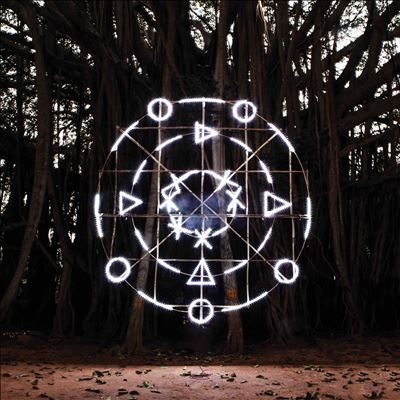3/4
時点_ポイント最大11倍
Sarathy Korwar
Sarathy Korwar 「Kalak」 CD
販売価格
2,890
円 (税込)
- 出荷目安:
- 当日-翌日出荷
たまるdポイント(通常) 26
+キャンペーンポイント(期間・用途限定) 最大10倍
※たまるdポイントはポイント支払を除く商品代金(税抜)の1%です。
※表示倍率は各キャンペーンの適用条件を全て満たした場合の最大倍率です。
各キャンペーンの適用状況によっては、ポイントの進呈数・付与倍率が最大倍率より少なくなる場合がございます。
dカードでお支払ならポイント3倍
各キャンペーンの適用状況によっては、ポイントの進呈数・付与倍率が最大倍率より少なくなる場合がございます。

- 商品情報
- レビュー
【販売店・発送】 タワーレコード株式会社
商品の情報
| 発売日:2022年11月11日 / ジャンル:JAZZ / フォーマット:CD / 構成数:1 / 製造国:輸入 / レーベル:The Leaf Label / SKU:843190012527 / 規格品番:BAY125CD |
商品の紹介
| Kalak is the fourth long-player by London-based percussionist and composer Sarathy Korwar. Produced, arranged, and mixed by Photay, it is a sequel to 2019s More Arriving, fusing modern jazz with Mumbai rap. There are no rappers present on Kalak. That said, the short bookend tracks do feature pointed spoken word. Korwar retains the earlier albums core instrumental personnel: electronicist Dan Leavers (aka Danalogue), Collocutor/Flock saxophonist/flutist Tamar Osborn, synthesist Al MacSween, and percussionist Magnus Mehta. Photay adds additional synths and drum programing, all engage in group chanting/singing. Two days of live recording sessions at Real World Studios netted material eventually edited for this album. “A Recipe to Cure Historical Amnesia” is a minute-long poem recited by Korwar atop kitchen sound effects: “...Memories will cook/Nostalgia is burned away ... The meal is now ruined/The meal is now ready.” Osborn’s pulsing flute introduces “To Remember” atop bubbling tablas, baritone sax, and organic and synthetic percussion and effects. Melt Yourself Down guitarist Kushal Gaya adds chanted, sung, and moaned vocals as the tune cooks with trance-like intensity. Single “Utopia Is a Colonial Project” commences with droning space age synths before layered percussion and keyboards rumble in, creating frenetic, rollicking dance rhythms as Osborn’s baritone bleats above the army of drums and keys. “Back in the Day, Things Were Not Always Simpler” is almost a drum raga, with its pulsing harmoniums, clashing synths, shruti boxes, an army of hand drums, and an angelic chorus of looped voices by Noni-Mouse (Mumbai-based singer/producer Radha Priya). Listened to loud enough for long enough, this track could alter one’s consciousness. “Remember Begum Rokheya” is a tribute to a Bengali author. Its dubwise bassline centers a complex polyrhythm composed entirely of handclaps, multi-tracked baritone saxophone and flute, and chanted vocals. “That Clocks Don’t Tell But Make Time” is the album’s hinge track. Dream-like and wonky, all of its instrumentation and sounds dissolve into a hypnotic, circular rhythm. Inside it, beats spiral out, return, then implode. By contrast, “Remember Circles Are Better Than Lines” joins together Indian classical rhythms and spacy synths that bridge house and new age simultaneously, as a heavily reverbed, blissed-out flute and a cut-time drum kit shuffle ultimately construct a glorious track for the dancefloor. “Remember to Look Out for the Signs” is all rhythm. It’s constructed from, and saturated in, an orgy of tablas, mridangam, dholak, cajon, and Western tom-toms. They’re sequenced in staggered, slightly syncopated contrapuntal circular rhythms. Through headphones they cross channels atop atmospheric handclaps, radio noise, synth blips, and honking baritone saxes resembling pulsing foghorns. These sounds flow all around the percussion, pointing to a dark, droning center of horns, electronics, and loops that eventually deconstruct the rhythms and enter silence. The bottom line is that Kalak is a musical manifesto of South Indian futurism. It stands out from the ideologies, prejudices, and cultural conceits of the West, offering an instructive, wildly diverse aesthetic approach that demands to be observed, critiqued, and celebrated on its own terms. ~ Thom Jurek |
| --- |
収録内容
|
・構成数 | 1 ・合計収録時間 | 00:42:33 1.CD
|



















